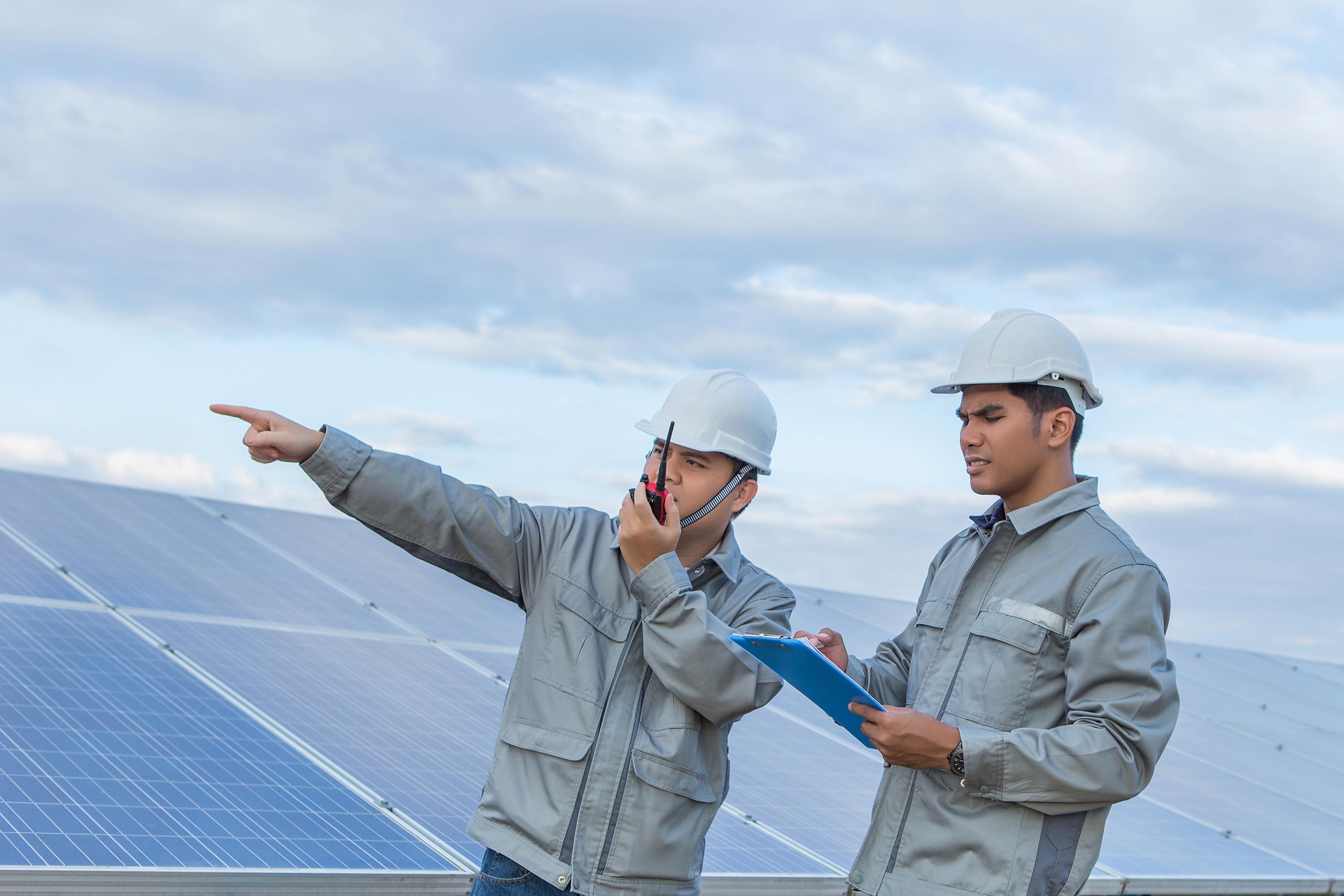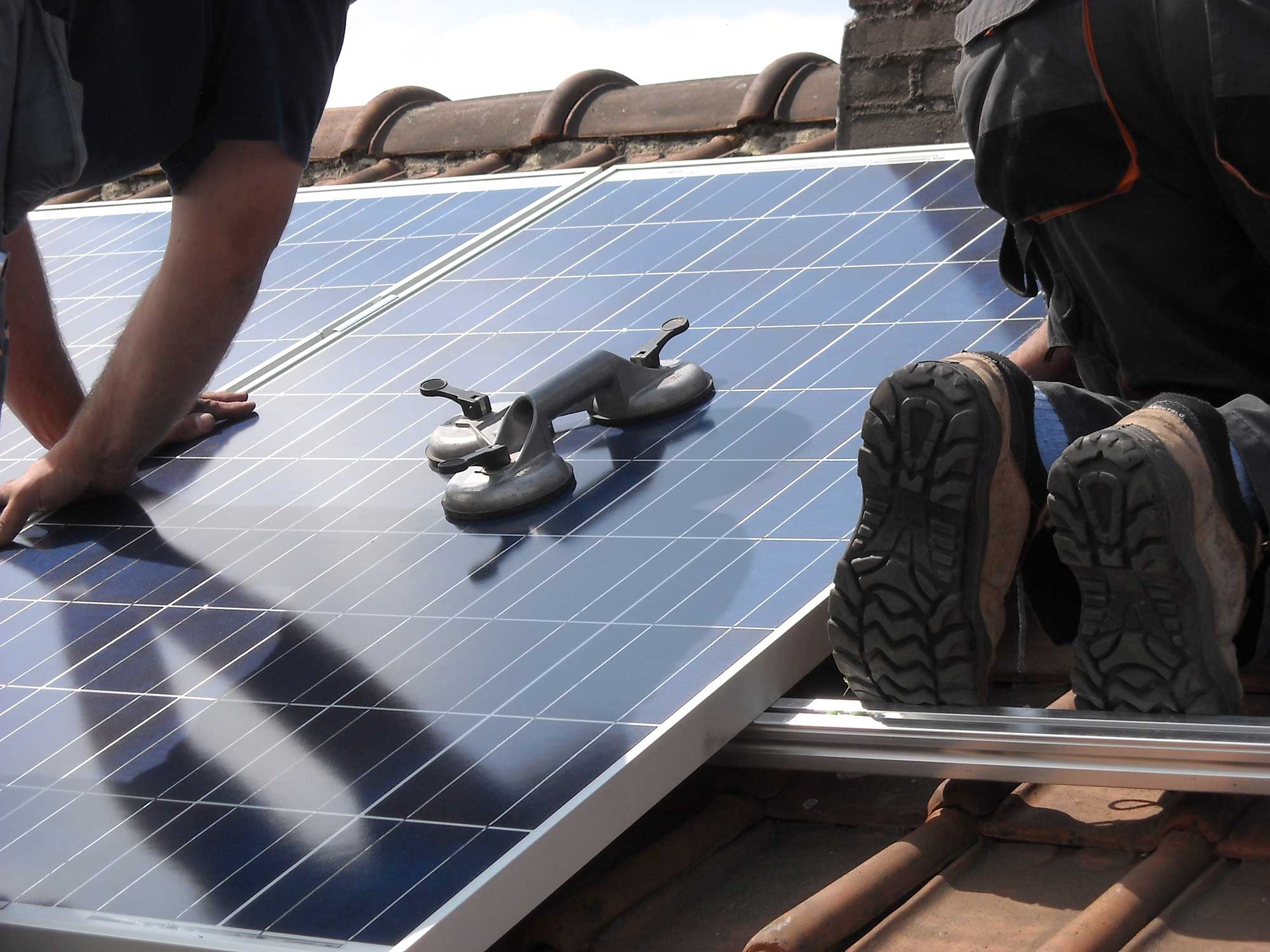An Overview of How Solar Power Works and Its Benefits
Solar power has become a popular renewable energy source, and for good reason. From powering homes to providing electricity to entire communities, it has a number of advantages. But exactly how does solar energy work? In this blog post, we’ll provide a comprehensive overview of how solar power works and its benefits. Let’s get started!
Understanding the Basics of Solar Power
Solar power works by collecting sunlight and converting it into electricity using solar panels. Solar panels have photovoltaic cells which absorb the sun’s energy and convert it into usable electricity. This energy can then be used to power homes, businesses and even whole cities. Solar energy is clean, renewable and reliable, making it a great choice for those looking for sustainable energy sources. Additionally, solar power systems require little maintenance and are easy to install, making them an attractive option for those who want to reduce their carbon footprint and increase their independence from traditional utility companies.
The efficiency of solar power depends on the location, climate, and the amount of sunlight available. Solar panels are the most common way of harnessing this energy and converting it into electricity. Solar energy is a renewable energy source and a clean, green alternative to other sources of energy. Solar panels are an easy to install and cost effective option for many homes and businesses, as they can reduce monthly energy bills while also helping to reduce greenhouse gas emissions. Solar power is becoming increasingly popular, particularly in sunny climates with lots of sunshine. Solar panels are designed to take advantage of available light, making them a great choice for areas with plentiful sunshine. Solar power has the potential to revolutionize the way we live, work and play in terms of efficient use of resources and renewable energy production. Solar power is a renewable energy source that does not produce any harmful emissions, making it an environmentally friendly choice Similarly, monitoring solar energy production can ensure that the investment in this renewable source is maximized. Solar power not only reduces harmful emissions, but it also has the potential to produce electricity more efficiently than other sources. Monitoring the production of solar energy can help ensure that the environmental and economic benefits are achieved.
Exploring the Benefits of Solar Power
Solar power is an incredibly efficient and renewable energy source that can help reduce our dependence on traditional energy sources such as the Electric Grid. Solar power is a great way to reduce our reliance on traditional methods of energy production and can even replace these sources altogether. Solar energy works by using solar panels to convert sunlight into usable electricity, which can then be used to power homes, businesses, and even entire cities. Additionally, solar power has the potential to significantly reduce carbon emissions and thus greatly reduce the impact of climate change. With the potential to provide clean, reliable, and affordable energy, solar power is an increasingly popular renewable energy source that can help move us toward a sustainable future. It can also help reduce air pollution and greenhouse gas emissions, making it a more sustainable option for the environment. Solar energy has been gaining popularity in recent years as more people become aware of its numerous benefits. Solar power is renewable, which means it can never run out and does not need to be replenished like other forms of energy. Solar energy also does not produce harmful emissions, such as carbon dioxide and methane, so it is a much cleaner form of energy than traditional sources like coal. Solar power can be used to generate electricity in both residential and commercial settings, and can be used to heat water and buildings or provide lighting. Solar energy is a clean, efficient, cost-effective, and renewable way to reduce the impact of climate change. Additionally, solar power systems require little to no maintenance, making them a cost-effective choice in the long run In conclusion, Solar energy is a cost-effective and sustainable choice for energy production. Solar power systems require little to no maintenance over the long run, making them a great choice for electricity providers looking to reduce their costs and their environmental impact. Solar power is a viable option that offers many advantages over traditional sources of energy production.
Examining Potential Risks Involved in Solar Energy
Solar energy has many benefits, but it also carries some potential risks to consider. Most notably, solar energy can be unpredictable due to weather patterns, meaning the Electric Grid must be able to handle uneven levels of electricity over the course of a day. In addition, solar panels can be expensive to install and require regular maintenance in order for them to continue functioning properly, both of which can be cost prohibitive for some. Despite these drawbacks, solar power provides a great potential for renewable energy and can help reduce our reliance on fossil fuels and other nonrenewable sources of energy. In order to maximize the advantages while minimizing the risks, proper installation and ongoing maintenance are essential when it comes to Solar Power. Solar Power has come a long way in terms of efficiency and cost-effectiveness, making it an attractive choice for homeowners and businesses alike. Solar panels provide an infinite source of clean, renewable energy that can be used to power homes and commercial buildings. Installing a solar panel system is the first step in harnessing the sun’s energy, but proper maintenance is key for ensuring consistent performance. Regular inspections and cleaning should be conducted to keep solar panels operating at peak efficiency and prevent any potential damage from extreme weather or debris build up. With proper installation and ongoing maintenance, solar power can provide significant financial savings while helping reduce our carbon footprint. Other potential risks include environmental impacts such as habitat disruption and releasing hazardous materials during production or disposal of solar panels Next, it is important to consider that the development and use of solar power may have potential risks such as environmental impacts including habitat disruption and the release of hazardous materials. Breaker boxes can be used to control the electricity produced by solar panels, but if not monitored properly, could lead to even more problems. Therefore, it is important to weigh both the benefits and potential risks of solar energy before investing in it.
Assessing Your Property’s Energy Needs and Suitability for Solar Power
It’s important to understand your property’s energy needs and assess whether solar power is a viable option before installing the system. Inverters are an integral part of a solar power system, as they help convert the DC power produced by your solar panels into AC power that can be used in your home. Inverters are rated by kilowatt (kW) or watt (W) sizes, so it’s important to choose the right size for your property’s energy needs. Inverters also come with safety features and other options such as lockout capability, which can improve the longevity of your solar power system. By understanding your energy needs and assessing whether solar power is a viable option for you, you’ll be able to make an informed decision on which inverter and components to install in your system. Assessing the orientation of your roof and amount of direct sunlight will help you get an accurate estimate of the potential return on investment that Solar Panels can provide. Solar power is one of the most cost-effective sources of renewable energy, and Solar Panels are a great way to harness this power. Solar Panels are easy to install and can provide a long-term solution for reducing your electricity bills. Additionally, Solar Panels require minimal maintenance and can help you reduce your carbon footprint by generating clean, renewable energy. By doing a thorough assessment of the orientation of your roof and amount of direct sunlight it receives, you’ll be able to make an informed decision that will maximize the return on your Solar Panel investment. Additionally, you should consider the installation cost, long-term maintenance costs, and other factors such as local regulations when determining if solar power is right for your home Moreover, it is important to consider that while solar power can be used to reduce your electricity bill, there are still costs associated with installation and maintenance. Additionally, you should be aware of any regulations or legislation of your local Electric Grid that may affect the viability of installing solar power in your home. With these points in mind, you will have a better understanding of the costs and benefits related to installing solar power at your residence.
Installing and Maintaining a Solar Power System
Installing a solar power system can be costly upfront, but the long-term benefits far outweigh the initial investment. Solar panels are a great way to reduce energy costs, as well as help reduce greenhouse gas emissions. Solar power is clean, renewable and sustainable, which makes it a great alternative to traditional forms of energy. Solar power systems also require minimal maintenance, meaning you can enjoy the benefits of clean energy for years to come without having to worry about repairs or running out of fuel. Solar power is an excellent choice for anyone looking to reduce their carbon footprint and save money on their long-term energy costs. Solar power systems require very little maintenance, with an occasional check-up to ensure everything is functioning properly. Solar panels should be inspected for any physical damage, such as cracks, to ensure they are still able to capture sunlight effectively. The electrical wiring should also be checked periodically to make sure it is secure and in good condition. Solar batteries should have their electrolyte levels monitored, and the charge controller needs to be adjusted occasionally. All of these components work together to provide reliable Solar power. Taking the time to check on these components will help ensure Solar power is running at peak performance and cost-effectively. It is also important to make sure your solar panels are kept clean and free from debris in order to maximize their efficiency Moreover, it is essential to not underestimate the importance of the inverter, which helps solar panels convert direct current into alternating current. Inverters also help maximize the efficiency of solar panels by being able to monitor and adjust voltage when needed. In addition, it is important to keep solar panels clean and free from debris in order to get the most out of them.
Monitoring Usage and Efficiency of Your Solar System
Solar systems can be monitored remotely to ensure they are operating efficiently and producing maximum power output. Solar energy has become increasingly popular in recent years due to its clean energy production and cost-efficiency. Solar systems have become more accessible, easy to install, and more affordable than ever before, making them a great option for residential and commercial use alike. Solar panels can be installed on roofs, in yards, or on the ground depending on the desired location. Solar power can be used to power individual households, entire buildings, and even entire towns! Solar energy is a great way to reduce our dependence on fossil fuels while increasing our use of renewable energy sources. By monitoring your solar system, you can identify issues such as shading, dust accumulation, and equipment malfunctions that could reduce its efficiency. Solar power is a renewable energy source that can be harnessed from the sun and turned into electricity or heat. The use of solar power is becoming more and more common as it is an affordable, clean, and safe way to generate power for homes and businesses. Solar Energy Systems are available in many shapes and sizes depending on the needs of the user. With proper maintenance and monitoring, a solar system can provide reliable, cost-effective energy throughout its lifetime. Regular monitoring of your solar system also helps you to spot potential problems early on and take the necessary steps to keep your system running smoothly In conclusion, solar power is one of the most dependable, efficient and reliable alternative energy sources available. In addition to the energy savings and environmental benefits, regular monitoring of your solar system can help you to spot potential problems early on with its inverter, and thus take the necessary steps to keep your system running smoothly.
Wrapping up
In conclusion, solar power is an increasingly popular renewable energy source that has a variety of benefits. Solar power is simple to install and can provide clean, reliable electricity and hot water for homes and even entire communities. By taking advantage of this renewable energy source, we can reduce our dependence on fossil fuels and help protect the environment. Not only that, but it can also help save money in the long run by reducing energy costs!


